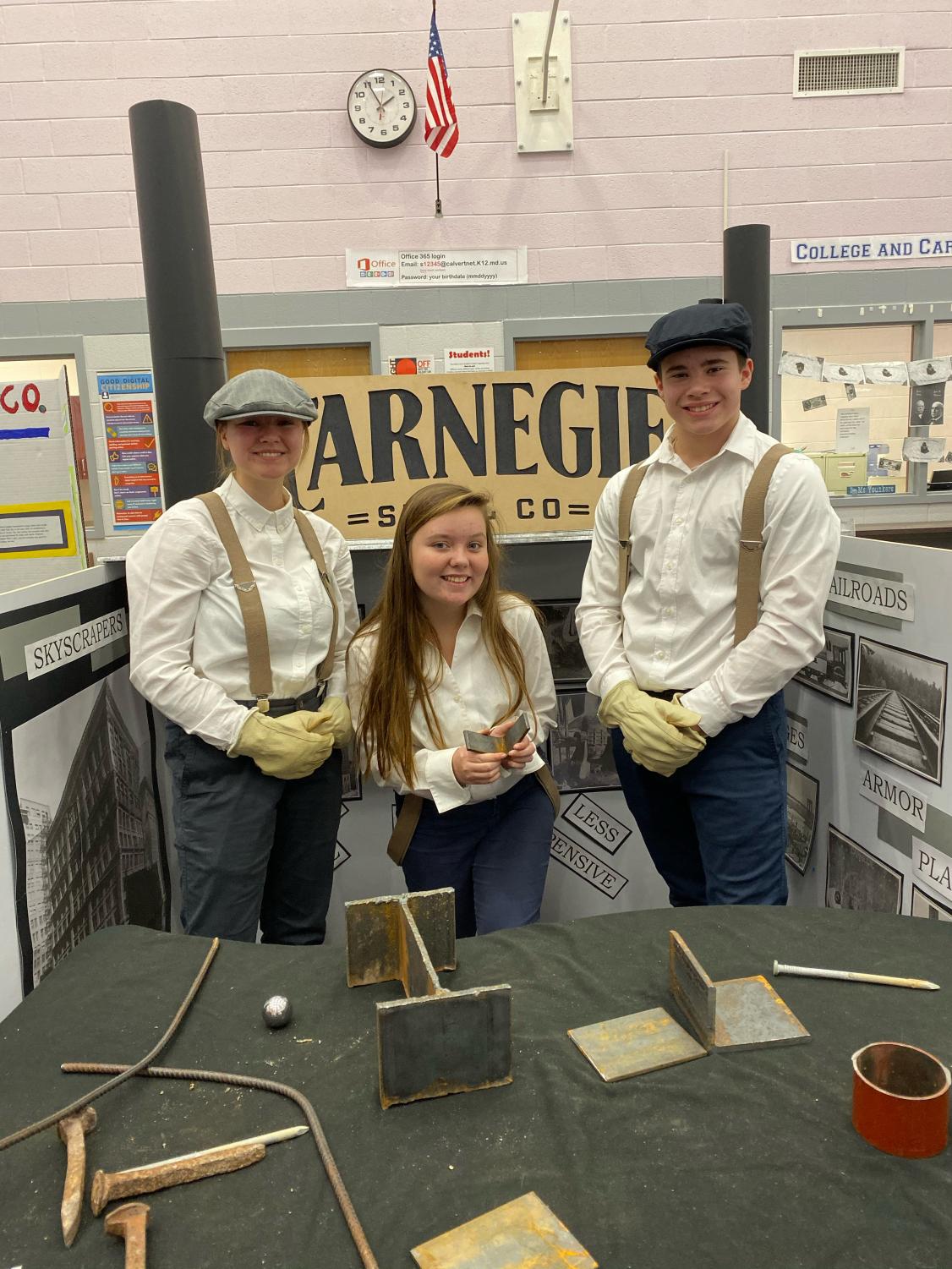Mask Optional: Fear or Freedom?
March 21, 2022
In March of 2020, the world stood still. Seemingly harmless airborne particles, invisible to the naked eye, plagued our lives and seized control. The very air we breathed became stifling, distressing. So, we adapted. Entire families piled themselves together at home, Teams meetings became classrooms, and toilet paper inventories were ravaged without remorse. But perhaps more importantly now, the coronavirus forced us to wear masks, thin polyester shields that became our protection everywhere we went.
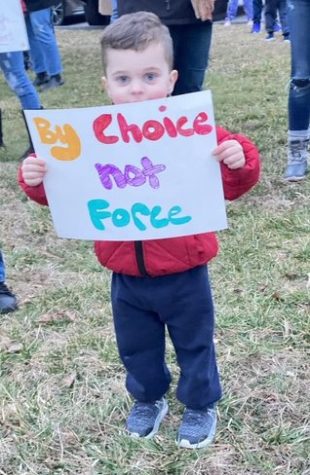
But then in 2022, as we tried to reclaim our lives, people fought the mask mandates meant to protect them, claiming that they infringed on their rights, suffocated them. So, masks became more than just protective equipment. They evolved into a politicized symbol. Just a few weeks ago, masks, a piece of cloth with two frail elastic ear loops, were tearing us apart. Students and parents alike protested against the Board of Education, until finally, on Sunday, February 27th, they got what they wanted: choice. Beginning on March 1st, Huntingtown High became an intermingling mob of masked and unmasked faces, as if it were a fashion trend that no one could agree on.
But does this reclaimed freedom from masks come at the right time? Or are people fearful of what is to come?
The Uproar Against Mask Mandates
On Tuesday, February 22nd, Calvert County schools prepared for the prospect of student-led anti-masking protests. Just days earlier, countless posts had circulated across student accounts on Instagram and Snapchat, calling for walkouts on 2/22/22 in opposition to mask mandates. Some posts even encouraged students to opt for the more moderate option of wearing red, white, and blue clothing in support of a mask optional policy.
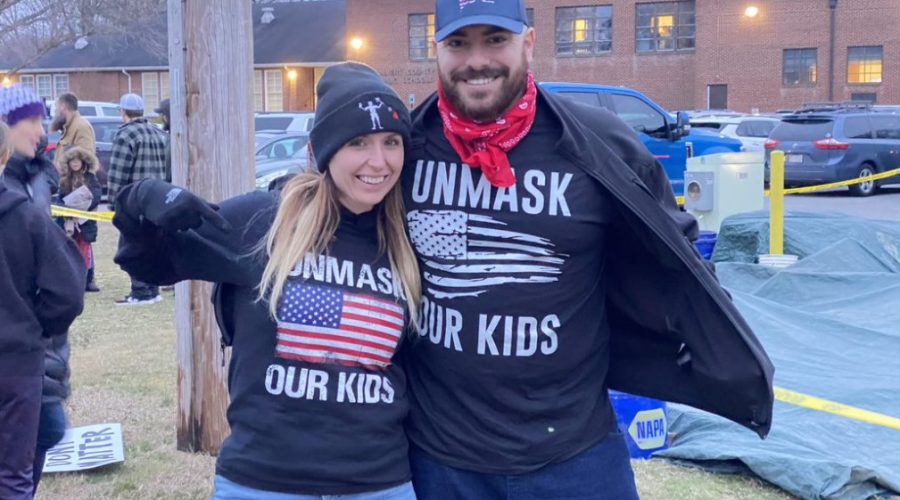
At Huntingtown High, staff members were made aware of these threats, and teachers were advised to let students leave the classrooms if they insisted on protesting. The goal was to avoid conflict. So, students would merely be marked absent if they left the classroom. However, on the infamous day, Huntingtown saw no walkout. But other states were not so lucky. Students in California, Illinois, and Washington vacated their school buildings mid-instruction, highlighting the growing frustration against the polarizing mask mandates.
On the same day that the walkout was planned, the Maryland State Board of Education voted to revoke its mask mandate. This marked a monumental win for anti-maskers since individual school districts would henceforth be able to enforce their own mask policy. However, in an email sent out to school staff and parents the following day, Dr. Curry, the superintendent of CCPS, announced that until the infection rate of COVID cases fell into the moderate range (less than 50 cases per 100,000 residents), mask requirements would remain in place. In the letter, Dr. Curry even encouraged parents to vaccinate their children, explaining, “Parents who have delayed having their children vaccinated against COVID may want to take this time to reassess their decisions. Vaccinations for 5 to 11-year-olds have proven very effective and extremely safe.” Regrettably, his comments triggered a backlash from Calvert families. Parents claimed that Dr. Curry was giving unsolicited parenting advice for a private medical decision. So, more protests ensued.
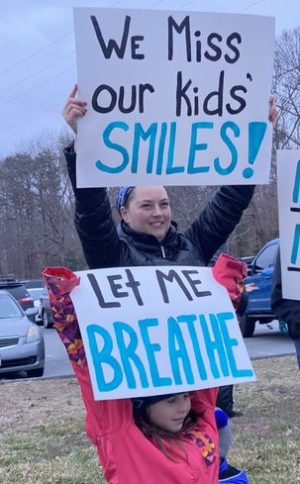
On Thursday, February 24th, the Calvert County Board of Education held a meeting to discuss a number of issues, among them, school masking policies. While some Calvert parents attended the meeting to publicly condemn mask mandates (see the video above), others turned to a different means of resistance: rallying outside the Board of Education building and hollering at oncoming traffic. There were about one hundred people in attendance at the outdoor protest, including elementary school-age children holding signs that read things like, “Let me breathe.” The Forecast’s advisor, Mr. Allen, attended the protest for journalistic purposes. He reports hearing that the protestors planned to send their children to school without masks if things didn’t change.
As the evening wore on, tensions were only heightened. The Board of Education was continuously blasted with sarcastic comments from fuming parents, so it had to adjourn early. Most notably, when a motion to overturn Dr. Curry’s controversial letter failed (1 to 3), the crowd jeered at the Board members. Screams like “Shame on you!” and “Straight to hell!” could be heard as the public lashed out.
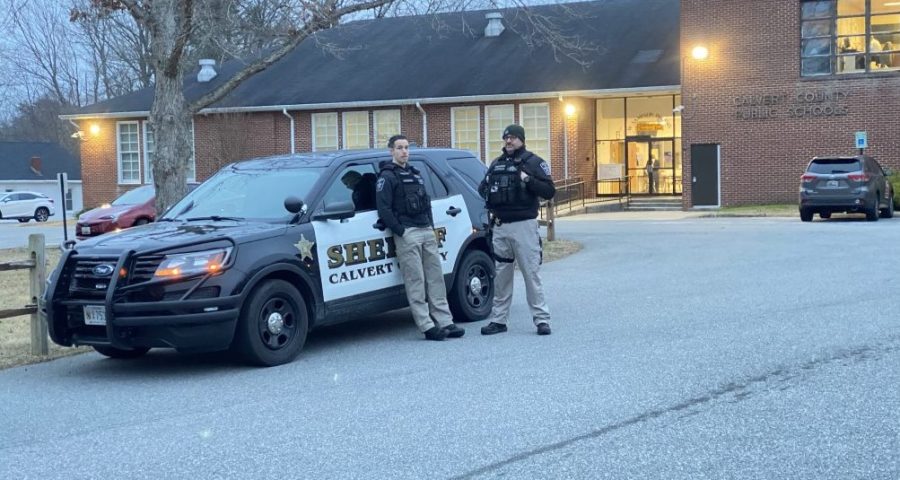
Then, on Saturday, February 26th, in a miraculous twist heightened by public pressure, Dr. Curry finally backed off of the mask mandate that he had previously staunchly upheld. So, hundreds of Canes took off their masks.
The Opinions of Canes
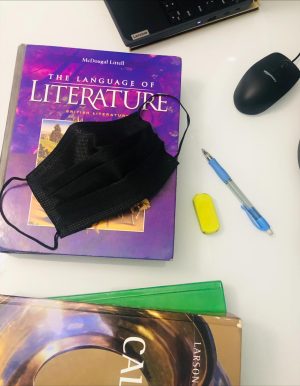
At Huntingtown High, there were a wide variety of reactions to the mask optional policy. Some students, like freshman Erin Walker, opted to continue wearing their masks even though they were vaccinated. Erin explains, “I wear my mask when I’m in rooms filled with people that I’m usually not around… For me, that makes me feel more comfortable.” Interestingly, for a vast number of students, the decision to wear or not to wear a mask comes on a case-by-case basis. Junior Sean Foss observed, “Most of the time if I’m surrounded by a ton of people, especially people I don’t know, I’ll wear a mask. But generally, if I know and trust them I don’t [wear a mask].” Sean even admitted to carrying a mask around at school that he would don and subsequently put away in different scenarios. So, clearly, masks continue to provide a feeling of security for students in unfamiliar situations. However, not everyone finds them as crucial as they once were.
Freshman Grace Minakowkski was among the students who decided to take off their masks once they got the choice. However, she explains that her decision to take off her mask came from feeling protected by the COVID vaccine. “I’m not wearing a mask because I’m fully vaccinated,” she declared. “I have faith in the vaccine because it’s been proved effective multiple times.” To students like Grace, getting vaccinated is an act that not only protects yourself, but also helps others. Erin Walker shares this sentiment. She asserted, “If you’re not vaccinated and you’re not wearing a mask, you’re not thinking of others before yourself.“ Moreover, Grace argued that if someone is unvaccinated, they’re putting themselves at risk. “I feel that if you had the opportunity to get vaccinated and you chose not to, it’s not my job to protect those people,“ she concluded.
For students with big plans, like junior Jacob Sharpe, the mask optional policy makes the future more uncertain. Jacob frets that the incidence of cases might rise as people start to take off their masks, which could mean shutting down again. “I’m hoping that it doesn’t get bad, because that’s gonna be awful. Our musical already got canceled my freshman year, three years ago. And to watch it happen again is not going to be fun,” he lamented. This year, starting on March 25th, Huntingtown’s theater department is scheduled to produce Something Rotten!, a musical filled with jazzy tap numbers. To Jacob, and other incoming students who were robbed of a normal freshman year in high school, this is the first time they could possibly be part of a real show. So, the stakes are high and there is much to lose.
An interview with Huntingtown’s Young Democrats club revealed that even the politicians of tomorrow disapprove of the political atmosphere surrounding masks. Notably, senior Samantha Sheriff explains, “By making it [masks] politicized, we’re not respecting the doctors and all the research that’s been developed into vaccines… and the studies we’ve been shown about COVID. We’re not respecting it anymore.” Similarly, Mrs. Gillis, the former sponsor of Huntingtown’s Teen-Age Republican Club, wisely cautioned, “Masking should never be a political issue. Masking is a personal health and public safety issue and should be treated as such.”
Dr. Fauci’s Input
The change to a mask optional policy comes after the Centers for Disease Control and Prevention (CDC) modified the way it calculates COVID transmission risk in counties. Previously, only case rates were taken into account, but now, hospitalization rates are also being included. So, since COVID hospitalizations account for less than 10% of the local bed capacity and the case rate is less than 200 per 100,000 residents (the moderate range was previously < 50 cases per 100,000 residents), our community is now labeled as Low Transmission.
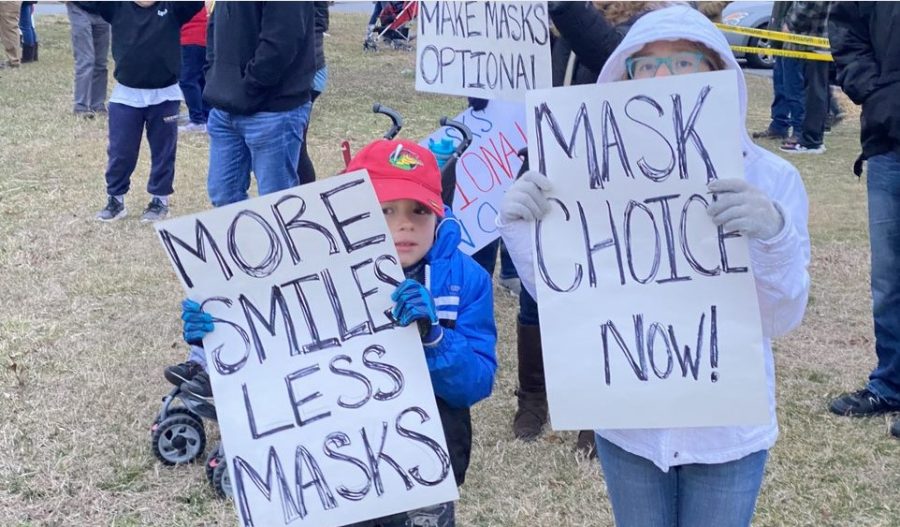
Although the CDC allows mask optional policies for schools in Low Transmission counties, Dr. Anthony Fauci, director of the National Institute of Allergy and Infectious Diseases and White House chief medical adviser, warns against hasty policymaking. In a public comment, he explained, “It’s understandable why people want to take masks off the kids. But, right now, given the level of activity that we have, it is risky,” He added, “Now we could get lucky, cause the trajectory right now is going way down. And it very well may be that if you take masks off of kids in the next week or so, it’s going to keep going down. But you have to be careful.”
So, as we approach a new era in a pandemic-ridden world, we must not forgo caution. Nor should we let politics drive our decisions and tear us apart. Instead, our own judgment and the well-being of our community must come first as we reclaim our lives.
